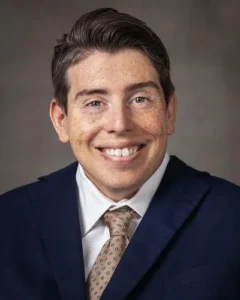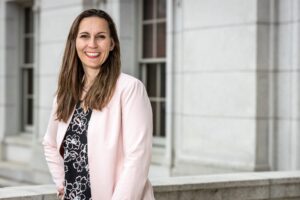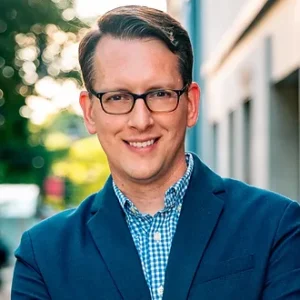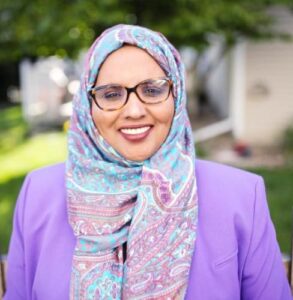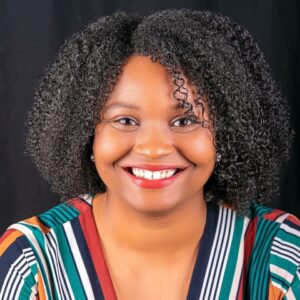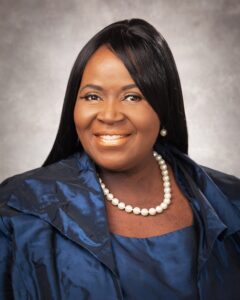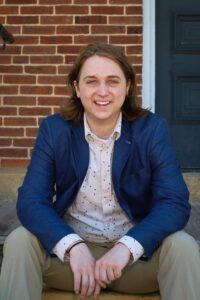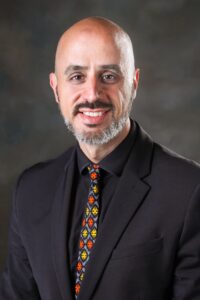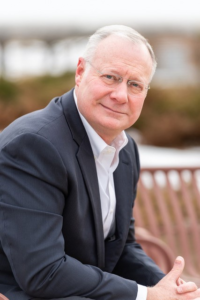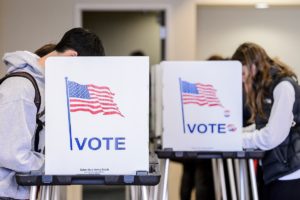Chuck Erickson, Renuka Mayadev, and Thad Schumacher are running in Assembly District 77. The district is currently represented by Shelia Stubbs who is running in the newly-drawn 78th Assembly District. There are no Republicans on the ballot so the winner next month is almost certain to win the general election. The district includes UW-Madison, the near-west side of Madison and Shorewood Hills.
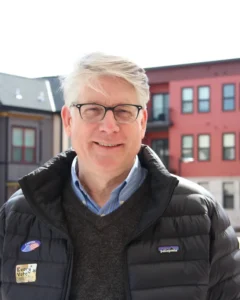
Chuck Erickson
Chuck Erickson’s responses:
What are your goals for your first/next term in office should you be elected?
If elected to represent Wisconsin Assembly District 77, my primary objectives will center on creating a more just and progressive community for all residents. A critical goal is to expand access to abortion services by repealing the antiquated 1849 abortion ban, ensuring that reproductive health care is accessible, safe, and comprehensive for everyone. Addressing the affordable housing crisis is also paramount. I will support policies that increase the availability of affordable housing and implement solutions to prevent and reduce homelessness, ensuring everyone has a stable and secure place to live. Additionally, I will fight for the repeal of right-to-work laws and Act 10, which undermine workers’ rights and erode collective bargaining power. By tackling these issues head-on, I hope to foster a community that not only meets the needs of its residents but also sets a standard for equity, inclusivity, and progress. My commitment is to build a Madison that is fair, supportive, and forward-thinking, ensuring a better quality of life for all our community members.
Please describe your qualifications and what sets you apart from your fellow candidates.
I am uniquely qualified for this position due to my extensive experience and proven track record in public service. Over the course of 22 years on the Dane County Board, I have had the honor of representing much of this district, during which time I have championed numerous progressive policies that have positively impacted our community.
What sets me apart from my fellow candidates is not only my deep-rooted connection to this community but also my ability to deliver tangible results. During my time on the county board, my work led to securing $2.3 million for the construction of affordable housing and a groundbreaking, carbon-neutral community center at Bayview. My extensive experience on the board has equipped me with the knowledge, expertise, and relationships necessary to advocate for our district in the Assembly effectively. I understand the intricacies of policy-making and the importance of building coalitions to achieve meaningful change. I am dedicated to continuing my work on behalf of our community, ensuring that we make meaningful progress on critical issues such as affordable housing, education funding, and workers’ rights.
While UW-Madison is situated in Dane County, its role as an economic engine it benefits the entire state. UW-Madison also has unique needs that are different from the other Universities of Wisconsin. Please tell us how you would represent UW-Madison in the Legislature and encourage your colleagues from outside Dane County to understand the statewide benefit of a strong UW-Madison?
UW-Madison is a world-class leader in research, benefiting communities across Wisconsin. The most pronounced example of this is agricultural research. Agricultural research conducted at UW-Madison directly benefits many regions across the state, including the districts represented by my colleagues in the Legislature. The university’s cutting-edge research in agriculture has far-reaching impacts that enhance the productivity, sustainability, and economic viability of farms and rural communities throughout Wisconsin.
For example, UW-Madison’s research in crop science, animal husbandry, and sustainable farming practices has led to significant advancements that improve yields and reduce costs for farmers. This directly benefits agricultural districts by increasing profitability and stability for farming families. Innovative techniques developed at UW-Madison help farmers adopt sustainable practices that preserve soil health, reduce the use of harmful chemicals, and promote environmental stewardship.
By consistently advocating for and reminding other legislators of the benefits of a strong UW-Madison, I will serve as an effective representative. I will highlight specific success stories of how the university’s agricultural research has positively impacted farms and rural communities in various legislative districts, showcasing tangible results that demonstrate the real-world benefits of continued investment in the university. Facilitating dialogue and collaboration between UW-Madison researchers and legislators will be another key strategy. By organizing briefings, tours, and meetings, I will create opportunities for my colleagues to engage directly with experts and gain a deeper understanding of the university’s contributions to agriculture and beyond.
State funding for higher education has fallen dramatically over the past several decades, resulting in a dependence on tuition and fundraising to replace decreased state support. A ten-year long tuition freeze coupled with previous state budget cuts has forced UW-Madison to make serious cuts, while other UW System campuses face devastating budget shortfalls. How would you address these concerns if elected?
I will advocate for increased state funding for the UW System. Higher education is a critical investment in our state’s future, driving economic growth and innovation. Restoring and enhancing state support will alleviate financial pressures on our universities and ensure they continue to provide high-quality education and research opportunities. I will also work to build bipartisan support by emphasizing the broad benefits of a well-funded university system, which impacts all regions of the state. By demonstrating the economic and social contributions of our universities, I will make a compelling case for increased investment. By addressing these issues, I aim to strengthen our universities and ensure they continue to serve as vital resources for Wisconsin’s future.
The current legislative majorities have worked to delegitimize diversity, equity, and inclusion (DEI) efforts. Legislators have forced the university to reclassify DEI positions and a legislative audit of UW DEI programs is underway. UW-Madison as an institution understands diversity to be a value that is inextricable from its other values, including educational and research excellence. Tell us about your legislative priorities on diversity, racial justice, and their relation to the values you hold related to higher education.
As an advocate for higher education, I firmly believe that diversity, equity, and inclusion are integral to the mission and values of institutions like UW-Madison. Diversity enriches the educational experience, fosters innovation, and reflects the broader society we serve. My legislative priorities will focus on strengthening DEI efforts and ensuring that these values are upheld and supported within our higher education system. I will work to protect and promote DEI initiatives at UW-Madison and other universities. Despite recent legislative actions to reclassify DEI positions and audit programs, I believe that DEI is crucial to achieving educational excellence. Diverse perspectives enhance problem-solving, drive creativity, and prepare students to thrive in a global society. I will advocate for policies that support DEI programs and resist efforts that seek to undermine or diminish their importance.
Additionally, I will support legislation that addresses racial justice and systemic inequities both within higher education and in our broader communities. This includes pushing for increased funding for programs that support underrepresented and marginalized students, as well as fostering partnerships with community organizations to address educational disparities.
Wisconsin ranks near the bottom of state funding for four-year post-secondary education, while state funding for two-year technical education is among the best in the country. How would you address this disparity in the Legislature?
Addressing the disparity in state funding between four-year post-secondary education and two-year technical education requires a direct approach. I will advocate for increased state funding for four-year universities. At the same time, I will support maintaining strong funding for technical colleges. These colleges are crucial for career-ready skills and workforce training, providing valuable opportunities for students and meeting economic needs. To address the funding disparity, I will push for a review of the state’s higher education funding model. This review will consider the unique needs of both four-year institutions and technical colleges, aiming for equitable funding solutions that balance support across different types of higher education.
Work on the 2025-27 state budget will begin shortly after legislators are sworn into office. What are your funding priorities?
My funding priorities will center on key areas essential for Wisconsin’s future. I will focus on increasing support for both K–12 and higher education. For K–12, this involves ensuring that schools receive the resources necessary to provide high-quality education and address existing disparities. For higher education, I will advocate for more robust funding for both four-year universities and technical colleges to enhance educational opportunities and bolster research initiatives. Environmental protection will be a major focus as well. I will advocate for enhanced funding for the Department of Natural Resources (DNR) and support the creation of a dedicated stewardship fund to strengthen conservation efforts and safeguard our natural resources. Furthermore, I will push for increased revenue sharing to assist local governments in managing environmental and infrastructure projects.
PROFS has long advocated for paid family leave for all employees and is pleased that UW-Madison and the Universities of Wisconsin recently approved a modest six-week paid parental leave benefit. We believe this is just the first step and more needs to be done. Will you support initiatives like those offered by Governor Evers that would expand paid leave to state employees and create a paid leave insurance program for public and most private sector employees in the state?
Yes, I fully support initiatives to expand paid family leave for state employees and create a paid leave insurance program for both public and private sector employees in Wisconsin. The recent approval of a modest six-week paid parental leave benefit at UW-Madison and other UW System institutions is a significant step forward, but more comprehensive measures are needed to ensure that all employees have access to paid family leave. Expanding paid leave benefits aligns with my commitment to supporting workers and promoting family well-being. It supports not only the health and stability of families but also contributes to employee retention and productivity.
I will advocate for legislation similar to that proposed by Governor Evers, which aims to create a paid leave insurance program that covers a broad range of employees across both the public and private sectors. Such a program would provide workers with the security they need to take time off for family-related reasons without compromising their financial stability.
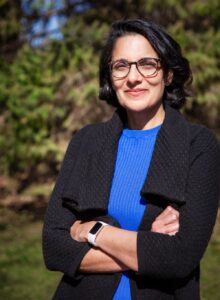
Renuka Mayadev
Renuka Mayadev’s responses:
What are your goals for your first/next term in office should you be elected?
I am a reproductive rights champion. Our rights, our daughters’ rights, and rights of women and girls across our state and our county are under constant attack. We must take decisive action to protect the future of reproductive rights. We must 1) repeal the 1849 abortion law and 2) pass a comprehensive reproductive health and rights law and 3) enshrine the right to reproductive freedom in our state constitution and I will start working on day 1 to make it happen.
We also must fully-fund our public schools and build a comprehensive early childhood education system. Public education in Wisconsin is underfunded and underserved by our state government. As a board member for the Wisconsin Early Childhood Association, I know the importance of early childhood education. Wisconsin must support a public school system that begins with early childhood education through college/career training. Additionally, it is crucial that we fully fund the UW-System. It is the great innovator of our state, producing the brilliant minds and the vital research to move Wisconsin forward.
I will also fight to repeal Act 10 and strengthen workers rights. All workers deserve a living wage, fair working conditions, and the right to collectively bargain to protect their common interests. Act 10 has devastated workers in our state, and has hurt our ability to recruit talented individuals to public sector jobs. I will stand to reinstate collective bargaining rights. Public workers must be able to negotiate for the pay, benefits, and their working conditions.
Please describe your qualifications and what sets you apart from your fellow candidates.
I’m a mother of two, a daughter of immigrants, and I have worked my entire career for women, children, and working families. I work at the UW School of Medicine and Public Health on improving the health outcomes of women and children across Wisconsin. I have hands-on experience with the issues facing communities in Madison and around Wisconsin today, and I know how to make the solutions a reality. A graduate of Georgetown Law School, I have worked on policy throughout my career in state government working for a Democratic governor as the policy lead for criminal justice, public safety and workers’ compensation, at the United Way focused on building an early childhood education system, and at the Children’s Defense Fund where worked with civil right hero Marian Wright Edelman to advocate for children and families. My many years of experience in the trenches give me a deep understanding of how state policy can be crafted to work for real people, the inner workings of state government, and the strategy needed to lead when the Democrats are in the seat of power. That experience and knowledge is why I have been endorsed by Governor Jim Doyle, Lt Gov Barb Lawton, Sen Kelda Roys, and Rep Fran Hong, and other leaders who understand what it takes to get things done.
While UW-Madison is situated in Dane County, its role as an economic engine it benefits the entire state. UW-Madison also has unique needs that are different from the other Universities of Wisconsin. Please tell us how you would represent UW-Madison in the Legislature and encourage your colleagues from outside Dane County to understand the statewide benefit of a strong UW-Madison?
We are Badgers in our household! I currently work for the UW School of Medicine and Public Health (SMPH) and my husband is the Dean of University of Wisconsin Law School. UW-Madison is under threat from an ultra-MAGA agenda that is openly hostile to higher education. Just last session, we saw pay raises and a desperately needed engineering building held hostage by the Assembly Speaker, because of their contempt for diversity, equity, and inclusion. But these core values are essential to UW-Madison’s mission of being a world class leader in education and research. They’re also essential to fulfilling the future promise of the State of Wisconsin. I will stand up for these values and share the good work that UW-Madison does to fulfill the Wisconsin idea through its teaching, research, and service.
State funding for higher education has fallen dramatically over the past several decades, resulting in a dependence on tuition and fundraising to replace decreased state support. A ten-year long tuition freeze coupled with previous state budget cuts has forced UW-Madison to make serious cuts, while other UW System campuses face devastating budget shortfalls. How would you address these concerns if elected?
We need to dramatically increase state funding for public higher education, a workforce engine that benefits people across our state. Speaker Vos has misused his power to weaken the Universities of Wisconsin, to the detriment of our students, employees, and the communities we serve. We need to invest in UW-Madison and the other wonderful institutions in the Universities of Wisconsin. These public universities are essential to our future success, not only because they educate the next generation of leaders but also because of the groundbreaking research and desperately needed services they provide to people who need them. As an employee of the University School of Medicine & Public Health in the Wisconsin Partnership Program, I know firsthand how UW-Madison directly benefits communities throughout the state, and can share that reality with people who don’t always appreciate it. Having worked for many years as a maternal and child health advocate, I know how much our future depends on closing the alarming racial and economic gaps that exist in our system. I have developed strategic grant programs that support community organizations like the Foundation for Black Women’s Wellness, Harambe Village Doulas, and many other non-profits supporting women, children, and families. This funding and work would be impossible without the UW. I will fight to fully support and improve the Universities of Wisconsin especially the amazing work that’s going on at UW-Madison.
The current legislative majorities have worked to delegitimize diversity, equity, and inclusion (DEI) efforts. Legislators have forced the university to reclassify DEI positions and a legislative audit of UW DEI programs is underway. UW-Madison as an institution understands diversity to be a value that is inextricable from its other values, including educational and research excellence. Tell us about your legislative priorities on diversity, racial justice, and their relation to the values you hold related to higher education.
Diversity is our strength, inextricably linked to excellence in higher education. When Speaker Vos and other Republican leaders attack diversity, equity, and inclusion at our universities, they imperil the collective future of all Wisconsinites. My entire career has been dedicated to working families, including people of all backgrounds and identities. At the University of Wisconsin School of Medicine & Public Health, I work to address the state’s appalling racial disparities in child and maternal health. It is shameful that Black infants are at so much greater risk of mortality, and that Black pregnant mothers are more likely to die in childbirth and during the postpartum period. If we do not affirmatively embrace and work to achieve equity, then these very real and unacceptable disparities will only worsen. We cannot solve problems we refuse to see. As a Representative, I will stand against the ultra-MAGA right’s attack on DEI, and fully support the Universities of Wisconsin in advancing these core values. That starts by reversing the limitations on DEI positions that Republican leaders forced on the Universities of Wisconsin. We must move forward, not backwards, and that means redoubling our commitment to recruiting a diverse group of students and employees to UW, providing a welcoming environment where everyone knows they belong, and ensuring that all students and employees have the resources and opportunities they need to fulfill their dreams.
Wisconsin ranks near the bottom of state funding for four-year post-secondary education, while state funding for two-year technical education is among the best in the country. How would you address this disparity in the Legislature?
Our two year technical institutions deserve support, but they are no substitute for outstanding universities that will open up opportunities for students of all backgrounds and advance the collective prosperity of people throughout Wisconsin. As a top-tier research and teaching university, UW-Madison is especially well suited to achieve these goals – but only if the state provides the resources and support that are needed for success. The legislature also needs to give UW-Madison bonding authority. Right now, we’re the only Big 10 school without the ability to borrow money for capital projects and other critical infrastructure needs. It’s outrageous that the Republican legislature has effectively starved our great University in this way. Our students, our employees, and all the people of Wisconsin deserve better. If I’m elected, I will fight to make sure that the state legislature is an ally of UW-Madison and other UW system schools, not an adversary.
Work on the 2025-27 state budget will begin shortly after legislators are sworn into office. What are your funding priorities?
Starting on Day 1, I will fight to fully fund our public education system, restore our support for the Universities of Wisconsin, and expand Medicaid. I am running to secure a better future for coming generations of Wisconsinites. These three investment priorities that will make life better for all of us. For too long our legislature has put public money into unaccountable private schools. By fully funding our public education system, we are investing in our students’ success and our state’s future. In addition, we need to increase state support for the Universities of Wisconsin. Budget after budget, the Republican legislature has chipped away at our higher education system, to the detriment of our students, employees, and the communities we serve. By investing in our public universities, especially UW-Madison, we can increase our faculty/staff, provide fair pay and benefits to all employees, and make needed infrastructure improvements, keeping tuition and student debt at reasonable levels, enhancing our status as one of the premier higher education systems in the country. Finally, I will fight to expand Medicaid in Wisconsin. For years, Wisconsin has left on the table federal funds that would allow more Wisconsin families to have healthcare coverage. This is really a no-brainer, opposition to which is motivated by the ultra-MAGA right’s lingering spite over Obamacare. Medicaid expansion would cover thousands of Wisconsin families, allowing them to seek preventative care today to prevent negative health outcomes tomorrow.
PROFS has long advocated for paid family leave for all employees and is pleased that UW-Madison and the Universities of Wisconsin recently approved a modest six-week paid parental leave benefit. We believe this is just the first step and more needs to be done. Will you support initiatives like those offered by Governor Evers that would expand paid leave to state employees and create a paid leave insurance program for public and most private sector employees in the state?
Emphatically yes! Wisconsin is far behind the curve in ensuring paid family leave to public and private employees, which puts working families in impossible situations. The 6-week paid parental leave that the Universities of Wisconsin put in place is a step in the right direction, but we need more and bigger steps. That includes a robust paid family leave program that supports employees across all industries and sectors of our economy, especially higher education. As an advocate for early childhood health, I know how important it is for children’s development to have their parents available during those crucial first weeks and months of their lives. Investing in paid leave is investing in our future, and I will be proud to stand with Governor Evers and forward-thinking legislators to create a comprehensive paid leave plan for all Wisconsin workers.
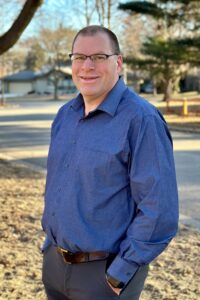
Thad Schumacher
Thad Schumacher’s responses:
What are your goals for your first/next term in office should you be elected?
My focus in the state legislature will be on taking meaningful action and delivering solutions for the people of Wisconsin. With a conservative majority in the senate more likely than not, progress will require working together to find common ground and work to take steps forward. I hope to build strong relationships with legislators from across the state, and work with them to find solutions to the problems that affect us all.
My biggest goal for my first term is passing prescription drug pricing reform to eliminate corporate middlemen that inflate premiums and co-pays for everyone. I believe that this could pass even through a Republican senate and it would increase access to care across the state, including those employed by the Universities of Wisconsin. Importantly, finding solutions to our shared problems does not mean sacrificing the values we disagree on.
I intend to be a strong advocate for bodily autonomy, strengthening minority communities, and queer and trans rights. With more swing districts on both sides of the aisle it will be more important than ever that there are legislators who can speak to the importance of protecting these vulnerable populations.
Please describe your qualifications and what sets you apart from your fellow candidates.
I am a healthcare provider who has been embedded in this community for over a decade. My work at the pharmacy has given me a unique viewpoint into the challenges facing this community, particularly the minority communities which I serve. As a provider I take care of patients from across the political spectrum. This requires communication skills founded in building trust, which I use every day to find common ground and treat my patients. I believe these same skills will be critical in the legislature.
As a community business owner, I have established a long record of taking action to solve problems in the community. I have long offered free delivery to help patients who struggle with transportation. During Covid, I worked with the UW School of Pharmacy to be one of the largest testers and vaccinators in the county. After Roe fell, I offered Plan-B at cost to anyone who needed it.
As a first generation college student, I have a unique insight into the power of colleges and universities to enable economic mobility, and I have nearly a decade of experience working in Wisconsin State Government, where I was unanimously confirmed by the senate to be the chair of the Pharmacy Examining Board twice. I have a firsthand understanding of every part of the policy process, from legislative advocacy, to agency rulemaking, to real world application. This broad understanding will help me craft effective policies that produce real solutions.
While UW-Madison is situated in Dane County, its role as an economic engine it benefits the entire state. UW-Madison also has unique needs that are different from the other Universities of Wisconsin. Please tell us how you would represent UW-Madison in the Legislature and encourage your colleagues from outside Dane County to understand the statewide benefit of a strong UW-Madison?
As a first generation college graduate from rural Illinois, I know firsthand how higher education enables economic advancement. I believe I can speak to the experience of public university students who’s education will allow them to open a local business in their hometown which will drive economic development.
In my pharmacy, we employ UW alumni, providing them with meaningful careers that utilize their education. We also train UW students, offering practical experience that prepares them for future success. Our collaboration with UW faculty to collect research data underscores the university’s role in advancing healthcare and other fields. By implementing cutting-edge technology developed by UW-Madison startups, we demonstrate the university’s impact on improving industry standards and patient outcomes.
I will encourage my colleagues from outside Dane County to understand that a strong UW-Madison translates to statewide benefits. By highlighting the university’s contributions to economic growth, job creation, and technological advancement, I will advocate for policies that support its unique needs. Together, we can ensure that UW-Madison continues to thrive, driving innovation and prosperity for all of Wisconsin.
State funding for higher education has fallen dramatically over the past several decades, resulting in a dependence on tuition and fundraising to replace decreased state support. A ten-year long tuition freeze coupled with previous state budget cuts has forced UW-Madison to make serious cuts, while other UW System campuses face devastating budget shortfalls. How would you address these concerns if elected?
Addressing this problem must begin by increasing university funding from the state. Despite a massive budget surplus, the conservative legislature’s attacks on higher education has created this problem. By fully funding the university system, we can unlock long term economic growth for the entire state of Wisconsin.
The legislature also needs to work with the university system in pursuit of more efficiencies, expanding its ability to make their money go further. By eliminating bureaucratic restrictions on systems like the competitive bidding process we can create more efficiency in our universities. I’m committed to helping the universities find financial stability by increasing state level funding, while also removing restrictions on the university’s financial tools such as tuition freezes and competitive bidding restrictions.
The current legislative majorities have worked to delegitimize diversity, equity, and inclusion (DEI) efforts. Legislators have forced the university to reclassify DEI positions and a legislative audit of UW DEI programs is underway. UW-Madison as an institution understands diversity to be a value that is inextricable from its other values, including educational and research excellence. Tell us about your legislative priorities on diversity, racial justice, and their relation to the values you hold related to higher education.
I believe that diversity, equity, and inclusion (DEI) not only creates a more equitable campus for faculty, staff, and students, it also facilitates a better learning and research environment. It produces more qualified graduates that enter the workforce that power our economy. The requirements for reclassification of DEI employees produced a chilling effect on inclusive efforts throughout the UW system, and if given the opportunity, I would work to reverse those requirements, to allow the Universities of Wisconsin to have autonomy for student and faculty services.
My work as a board member of the Boys and Girls Club of Dane County has shown me that achieving an equitable and diverse higher education and environment requires early investment in minority education to create a pathway to college for students of color. In the legislature I will work to expand these pre-college programs for minority students. In the legislature, I also hope to facilitate minority growth in higher education by investing in hiring and admissions, and training. Supporting our faculty of color, and recruiting new faculty of color, helps minority students see the university as a place where they belong. These initiatives are core faculty development goals, and in the legislature I will fight to defend them.
Wisconsin ranks near the bottom of state funding for four-year post-secondary education, while state funding for two-year technical education is among the best in the country. How would you address this disparity in the Legislature?
I believe that strong funding for higher education is critical to meeting our state’s long term economic goals, and this requires investment at all levels. While our state rightly invests in two-year technical education, our weak funding in four-year institutions holds us back. This imbalance limits opportunities for students and undermines the potential for innovation and economic growth.
Addressing this disparity requires a multi-faceted approach. First, I will advocate for increased state funding for four-year universities. These institutions are critical for fostering research, innovation, and a highly skilled workforce that can drive our economy forward. This increased funding is critical to addressing our current and future college educated workforce shortages which threaten to drag down economic growth. By drawing on the absurd state budget surplus, we can ensure that our universities have the funding they need to excel.
Second, I will support policies that encourage partnerships between four-year universities and two-year technical colleges. These collaborations can create seamless pathways for students, allowing them to transfer credits and pursue advanced degrees without unnecessary barriers. Strengthening these connections will make higher education more accessible and affordable, and would facilitate the development of university pathways for minority students.
Work on the 2025-27 state budget will begin shortly after legislators are sworn into office. What are your funding priorities?
- Addressing our Healthcare Crisis: As a healthcare provider I see how it has gotten harder and harder for people to afford care, while at the same time, doctors are being pushed to see more patients with fewer resources. This needs to be fixed. I am committed to using the budgetary process to hold corporate middlemen accountable, ensure that providers have the resources to take care of people, and bring the focus back to patient care
- Shared Revenue Reform: For years now, Madison taxpayers have sent their money to the state treasury only for it to gather dust in a historic surplus that the republican legislature is not willing to spend. At the same time, our city finances are in crisis. I am committed to fighting for a better shared revenue deal that gives Madison a fair shake.
- Supporting Skilled Workforce Development: Our state is facing a skilled worker shortage that threatens to hold back our economic growth. We must address this by investing in higher education, specifically for low-income and underrepresented students, and working to ensure that the young adults who graduate here remain in Wisconsin.
- Building a Clean Economy: By doubling down on our clean technology investments we can become more competitive for federal grants, and build good union jobs that help us reach our climate goals.
PROFS has long advocated for paid family leave for all employees and is pleased that UW-Madison and the Universities of Wisconsin recently approved a modest six-week paid parental leave benefit. We believe this is just the first step and more needs to be done. Will you support initiatives like those offered by Governor Evers that would expand paid leave to state employees and create a paid leave insurance program for public and most private sector employees in the state?
I fully support expanding paid family leave for all employees in Wisconsin. The recent approval of a six-week paid parental leave benefit by UW-Madison and the Universities of Wisconsin is a positive first step, but more needs to be done to support working families.
Paid family leave is essential for the well-being of our families and the economic health of our communities. By allowing employees to take time to care for their loved ones, paid family leave helps build stronger communities, and facilitates the recruitment and retention of the best faculty, staff, and graduates. I believe that access to paid family leave would advance both the public and private sector, and drive economic development statewide.I support initiatives to create a paid leave insurance program for public and private sector employees. This would allow for small employers to offer this benefit without taking on so much risk.
As the Wisconsin Retirement System shows, we are capable of developing stable, trustworthy benefit systems that enrich the quality of life for everyone. As a legislator, I am committed to advancing progressive and accessible paid leave programs for all of Wisconsin’s workers.
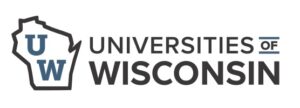 The Universities of Wisconsin Board of Regents is meeting at UW-Parkside on Thursday and Friday, September 26 and 27. Registration to watch the open portions of the meetings is here. The Regents met informally at a welcome reception on Wednesday evening and will meet again at the inauguration of UW-Parkside Chancellor Lynn Akey on Thursday evening.
The Universities of Wisconsin Board of Regents is meeting at UW-Parkside on Thursday and Friday, September 26 and 27. Registration to watch the open portions of the meetings is here. The Regents met informally at a welcome reception on Wednesday evening and will meet again at the inauguration of UW-Parkside Chancellor Lynn Akey on Thursday evening.

